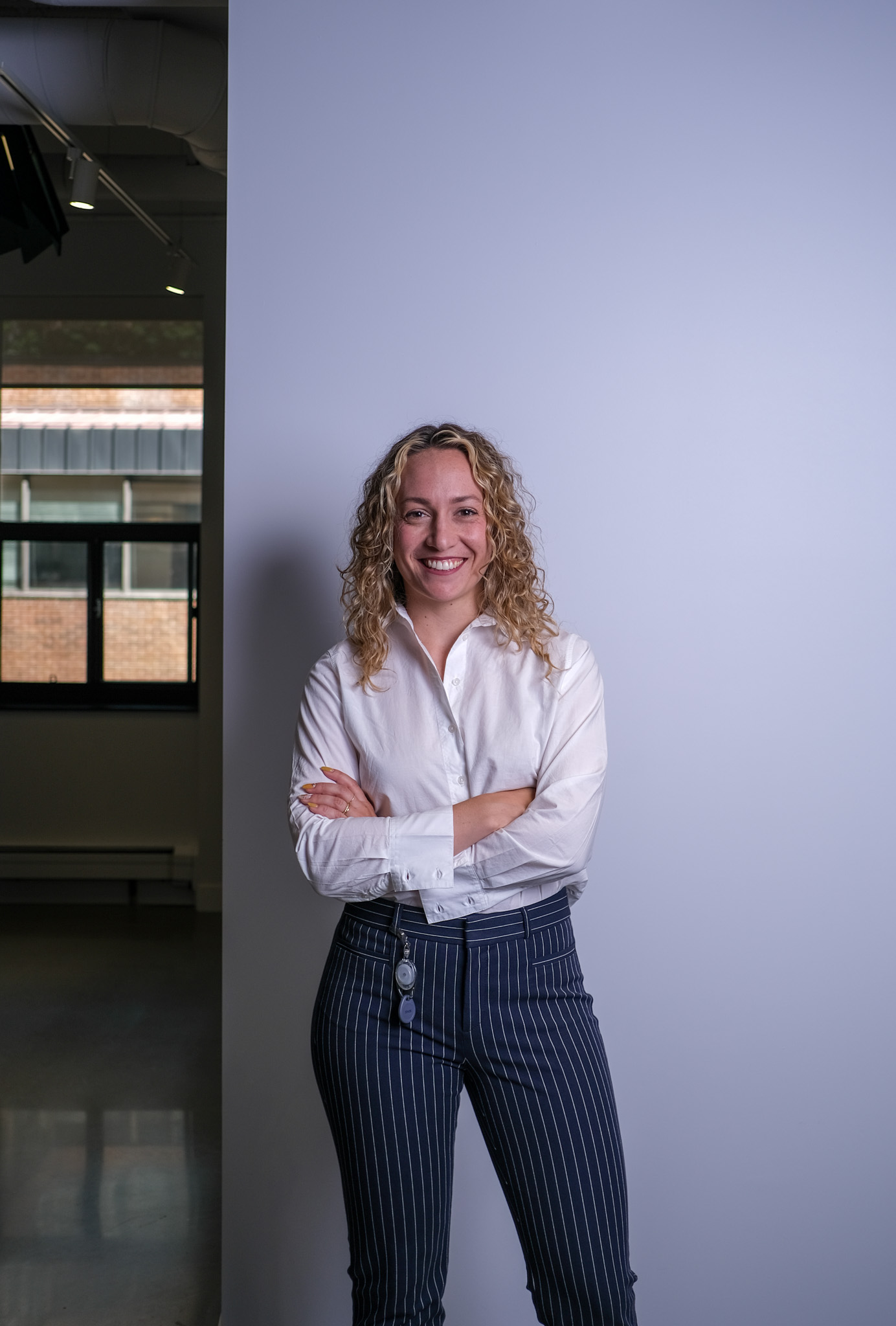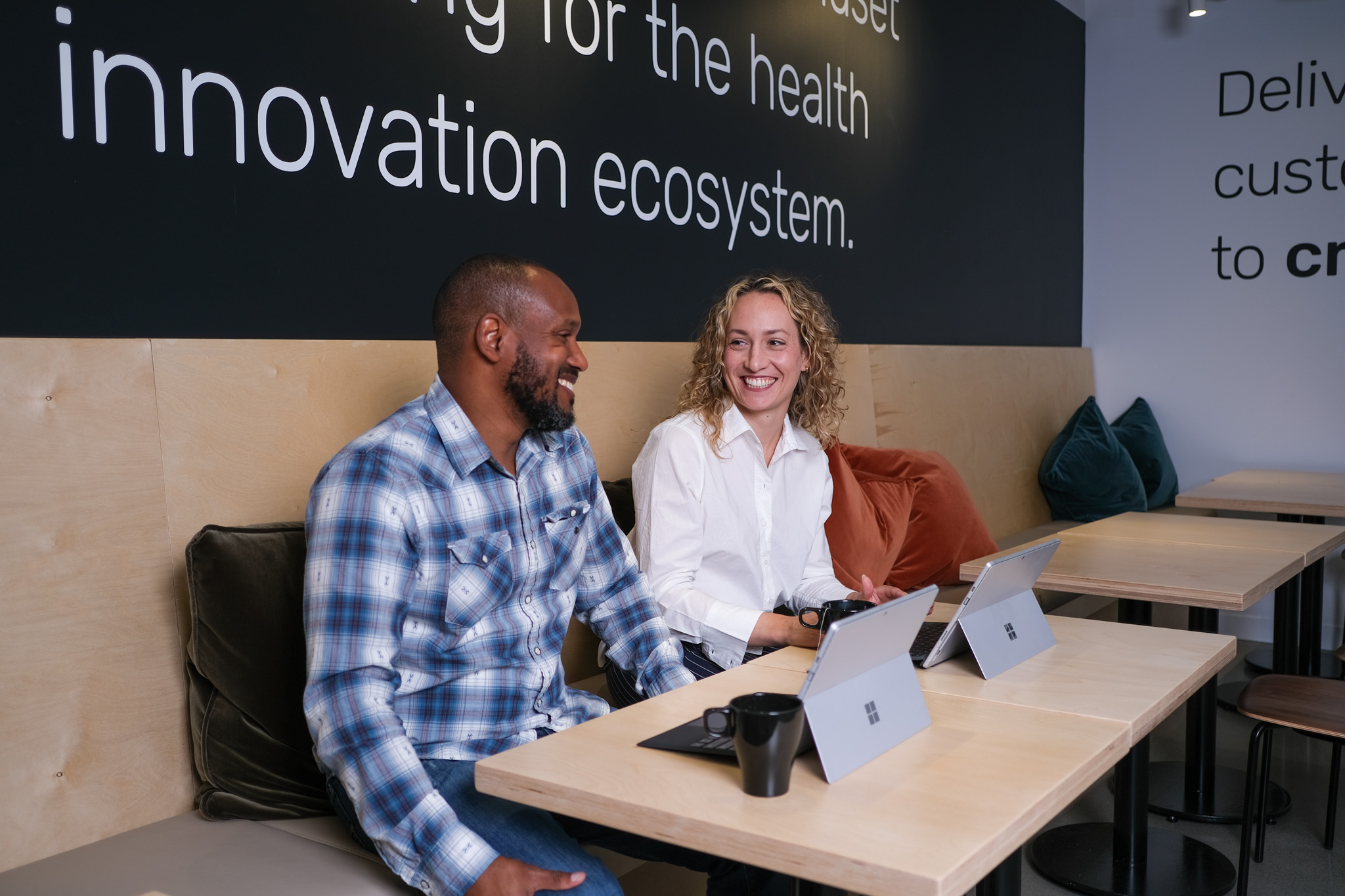Completed her Ph.D. in Dr. Paul Santerre’s lab in 2019, Dr. Meghan Wright always had a passion for entrepreneurship, business, and science. After graduating, Meghan interned briefly with the life sciences investment firm Bloom Burton & Co. as a consultant before joining Shift Health, a life sciences and healthcare strategy consulting firm located in Toronto. Now Meghan is working on projects across a wide range of areas – from the private sector to academia, to help transform healthcare.

What kind of consulting takes place at Shift Health?
We primarily focus on strategy consulting related to life sciences and healthcare research and innovation. We focus on improving or advising research programs and partnerships, whether it’s the academic or private sector, healthcare policy strategy, and earlier stage R&D programs. I’d say it’s more science-heavy and focused on R&D relative to management consulting. We focus less on the commercial or corporate operational aspects of things.
What kind of projects are you working on?
Right now, I’m working on a set of projects for the International Vaccine Institute, a nonprofit organization dedicated to delivering public health vaccines to the world. We are doing vaccine candidate landscape assessments and building business models for vaccines for two different infectious diseases: Strep A and salmonella.
Another project that I’m working on is an engagement with the Canadian Partnership Against Cancer, a nonprofit aimed at improving cancer care. We’re helping them develop solutions to drive equity-based cancer health services and policy research in Canada.
What are some of the challenges that you face as a consultant?
Time management is one of the first things that come to mind. As a consultant, you must be mindful of how much time each project takes and prioritize them accordingly based on urgency and client need. Right now, as a Senior Consultant at Shift Health, I typically act as the project manager on my projects. Sometimes we could be managing as many as 5 or 6 projects, so it’s very important to have excellent time management and be able to multitask and compartmentalize. My Ph.D. involved managing lots of different projects and workstreams, so I’d say graduate school really prepared me for this aspect of my work.
Another thing that I don’t hear people talk enough about when they’re talking about the consulting industry to students is client relationship management. This is such a critical part of any project, and I’d say it’s very different from anything we do in our Ph.D. work. In graduate school, we’re often working super independently. This is obviously different in consulting. Having an emotional awareness is critical when it comes to client relationship management. It’s not just about finishing the project, it’s about developing a work process that allows us to engage with the client in collaborative and cooperative ways. By watching my peers and senior team members here at Shift Health, I was able to learn a lot.

What is your general approach when working with clients?
At Shift Health, we have a company philosophy that I really like: we bring a science mindset to strategy consulting for the health research and innovation ecosystem. Having that science background allows our teams to quickly learn new technical subjects, which is so critical in our job when establishing credibility with our clients.
A typical work flow would follow the same 3 or 4 high level steps. We first establish a very clear understanding of the client’s needs. This would involve things like a kickoff meeting and reviewing internal documents. The next step is usually information gathering. This is a mix of both primary and secondary research. We do a lot of expert interviews here, which I really enjoy. In these interviews, we are trying to derive insights from key opinion leaders in the field, and they can take place as one-on-one interviews, workshops or focus groups.
After that, we synthesize what we’ve learned from our sources into a series of very clean, well-formulated insights or recommendations, and present them in a clear story to our clients. Usually, we’d be using a slide deck. The typical last step is to gather recommendations from clients or other stakeholders to validate and potentially incorporate their feedback. Then it’s finalized! A beautiful word in our world.

What is a trend you are seeing in healthcare through consulting projects?
From the projects I’ve worked on, I’d say there’s a couple trends worth noting: 1) a growing recognition of the urgent need to embed equity in the healthcare innovation ecosystem and 2) the need for multi-sector collaboration to enable data-driven healthcare.
There is definitely a big interest across stakeholders in improving equity in health innovation. This involves reducing barriers certain communities face when it comes to accessing treatment, enrollment in clinical studies, etc. The question here is how can we reduce these gaps? This is obviously a multifaceted problem and also requires a lot of collaboration and coordination across sectors before we can adequately address inequities.
And, as populations grow and age, the healthcare system is getting stretched, and there need to be ways to ensure accessible quality care across the population. Through our work, we have shepherded what’s called the Personalized Health Care Collaboration (PHCC), and the idea here is to foster dialogue across multiple sectors and enable collaboration that informs policy changes and activities within the space of health data. If done properly, data-driven healthcare has great potential for better and more universal care.

